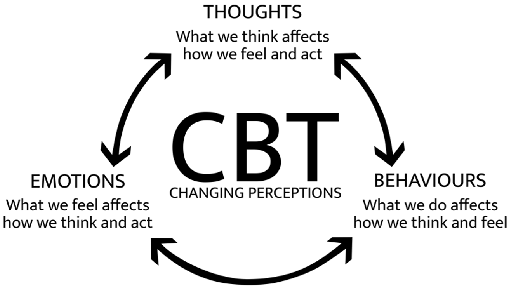This post is about a tried and true psychological therapy approach that I believe can result in big changes in the way that you engage with the world. Or how you feel about it. I am talking about Cognitive Behavioural Therapy or CBT. It might not be the trendiest kind of therapy out there, but I do think that it can really help a lot if something is bothering you.
The way it works is to first become more mindful of the thoughts and feelings that are bothering you. I believe that is the first step because sometimes these may not be so obvious. But the more that you practice mindfulness, and learn to be an ‘observer’ of your thoughts as they pass you by, the more you will notice ones might be maladaptive or not serving you in the best possible way.
For example, yesterday, I noticed the thought I had when I saw someone who looked like someone in my workspace that I hoped he didn’t see me, or hoped I could avoid talking to him. This is a classic example of an automatic thought that comes from nowhere (or from trauma from childhood, for example), that results in a feeling of avoidance, or fear.
As I have been practicing CBT for the past couple of weeks with other kinds of automatic thought, the therapy came to mind quickly as a way of turning this maladaptive thought into something that can be more workable.
How to practice Cognitive Behaviour Therapy (CBT)
First, I considered the situation that led to this feeling, and noticed the sensations in my body related to this thought. I noted what the automatic thought was that was generated as a result of the situation and considered how much I believed the thought (out of 100). Then I started to think about points of evidence that support the thought, and after this, points of evidence that don’t support the thought. After doing this, I was free to come up with an alternative thought that would be more appropriate based on the evidence, and then noticed how that thought made me feel instead.
Although I ran through this sequence in my head, the way to really learn the sequence is to write down in a spreadsheet or page in your journal the different steps of this process. I have created a spreadsheet with the different steps here. You can save it as a copy to make it editable. https://tinyurl.com/ya2qy8ls You can use it every time you have a thought that bothers you.
The brilliant thing is that the more you go through the process of filling out this sheet the more the process will stick in your mind, to be used in situations out in the world that require your instant attention and when a journal or spreadsheet is not handy.

Permanent changes for the better
Furthermore, I have noticed that you can actually rewire your brain in this way. In my example, my evidence against the thought was that if I actually did run into someone I know, I do actually enjoy talking to them, and I enjoy the sense of connection after the conversation has closed. This left me feeling happier overall. And later when I had to venture outside of my house again, I noticed that this ‘new’ thought of wanting to engage and connect with people who I bump into accidentally out there in the world, was becoming my new normal.
And so, I think that CBT can be a way of permanently changing patterns of thoughts and behaviours that are not serving us well. We can literally rewire our brains with healthier thoughts, and then enjoy a more positive set of feelings as well.
It can also lead to more ‘balanced’ thinking, where you are more likely to see the situation from someone else’s point of view – which is always a good thing!
Good luck!
References:
Image credits:
Rastogi, N and Keshtkar, F, 2018, ‘Process and components of cognitive behavioral therapy (CBT)’ , Research Gate, viewed 2 May 2020, < https://www.researchgate.net/figure/Process-and-components-of-cognitive-behavioral-therapy-CBT_fig1_326831604 >
Pidgeon, A, 2020, ‘Change your thoughts, and change your world’ from ‘Cognitive Behavioral Therapy: Can it help you?’, Move Forward Counselling, viewed 2 May 2020, < https://moveforwardlancaster.com/cognitive-behavioral-therapy-can-it-help-you/





Leave A Comment